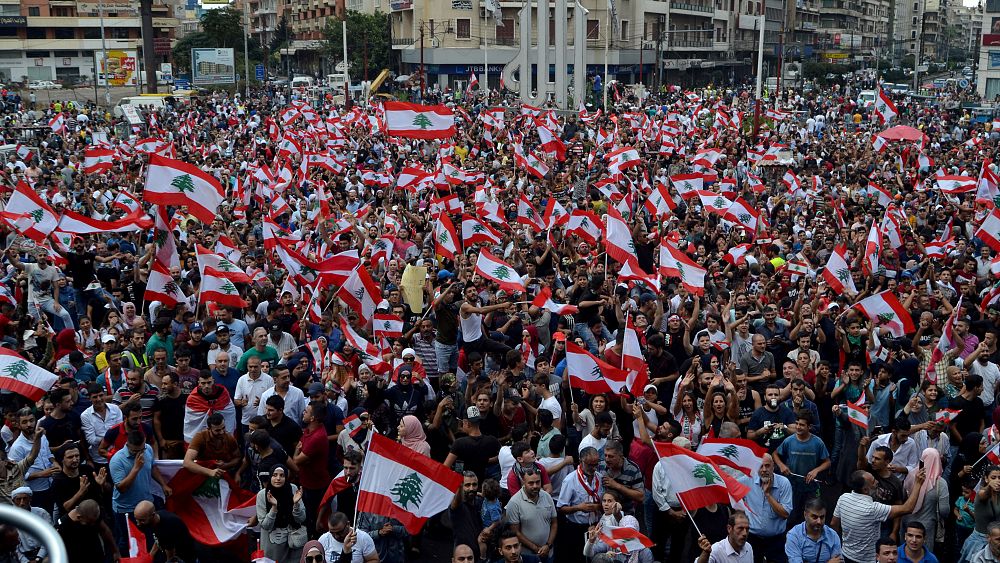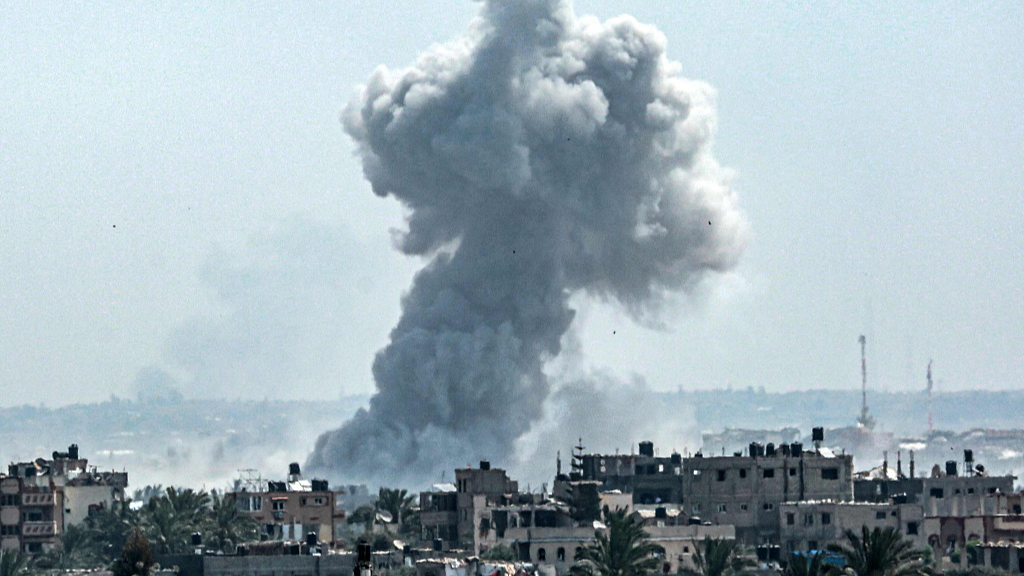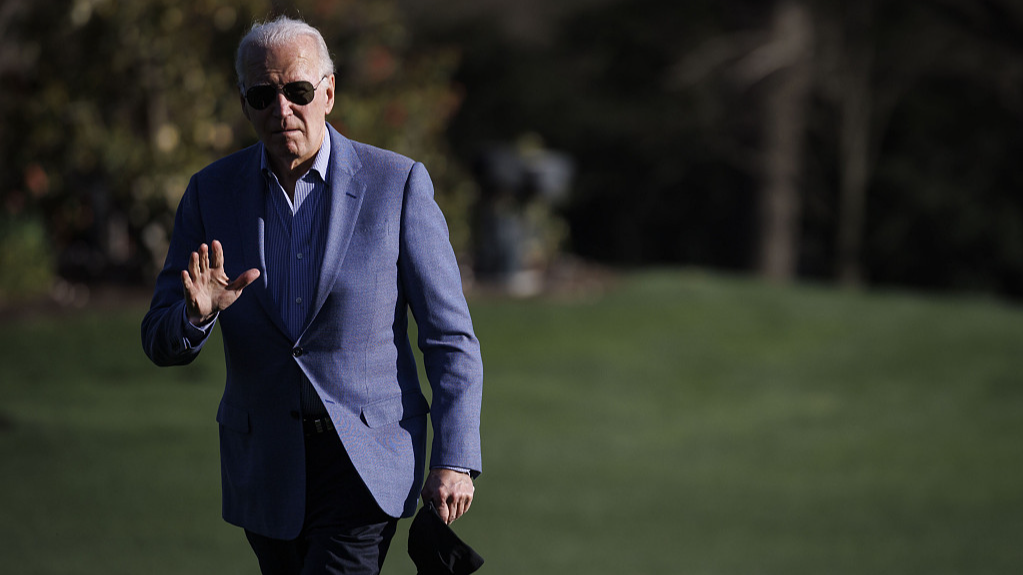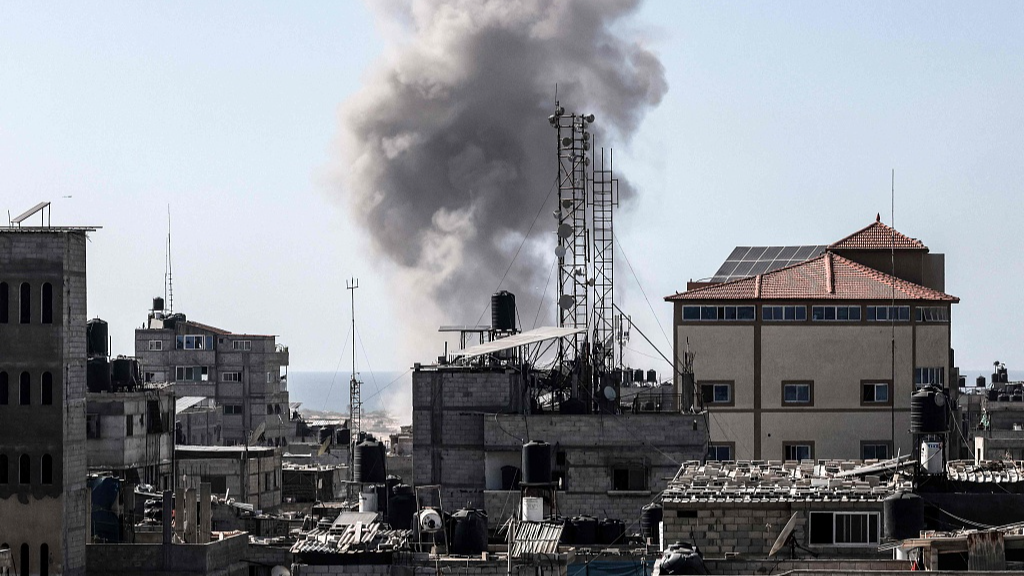by Tian Ye, Liu Zongya
BEIRUT, Dec. 30 (Xinhua) — Bidding farewell to the year 2022, the Lebanese are still battling to contain the repercussions of a lingering financial crisis and a political impasse of the failure to elect a new president after Michel Aoun left the presidential palace in October.
The financial crisis in Lebanon that began in 2019 was characterized in 2022 by the continued sharp depreciation of the Lebanese currency against the U.S. dollar, which has further shrunk the Lebanese people’s wealth. To prevent capital flight, Lebanese banks placed a cap on the amount of money depositors can withdraw.
However, signs of hope are seen as the Lebanese usher in a new year.
A maritime boundary agreement Lebanon signed with its arch-rival and neighbor Israel has raised the hope for lucrative gas explorations in the Eastern Mediterranean, which analysts believe could mitigate Lebanon’s financial woes and contribute to the improvement of the ties between the two countries that have no diplomatic relations.
Moreover, a hard-earned economic growth of 2 percent after a protracted and deep recession has added to the possibility of positive development for the country with a population of about 6.8 million.
POLITICAL DEADLOCK
Lebanon’s parliament has failed for several times over the past two months to elect a new president for a lack of consensus among political parties on a new successor to former President Aoun, who left office in October after finishing his six-year term.
Before the end of Aoun’s tenure, the Lebanese government had been in caretaker’s status following Prime Minister-designate Najib Mikati’s failure to form a new government. Lebanon now has an unprecedented dual executive-level power vacuum in the absence of a president and a fully-empowered government.
Political gridlock has slowed down the efforts to implement structural reforms demanded by the International Monetary Fund (IMF) in exchange for the IMF bailout loan of 3 billion U.S. dollars which could lead the country onto the path to recovery.
At the opening ceremony of the Arab Economic Forum held in Lebanon’s capital Beirut on Dec. 22, Mikati stressed that sweeping reforms remain vital to reach a deal with the IMF and unlock billions of dollars in aid to rescue Lebanon’s stricken economy.
The country is now “at a crossroads — it will either mark the start of the long-awaited economic revival or a gloomy decline,” he said.
The key to Lebanon’s salvation is achieving real political reform, the basis of which is to build a state of justice and citizenship away from the calculations of sects, factions, and their quotas, said Waref Kumayha, president of the Silk Road Institute for Studies and Research, a Beirut-based private organization.
LINGERING FINANCIAL CRISIS
Because of a severe shortage of the U.S. dollar in the ongoing financial crisis, the Lebanese pound has lost more than 90 percent of its value since 2019.
On Dec. 26, the exchange rate of the Lebanese currency sank to the record low of 48,000 pounds against one U.S. dollar on the parallel market, down from 40,000 pounds on Oct. 14.
Meanwhile, inflation in Lebanon registered a year-on-year increase of 189.4 percent in the first 11 months of 2022, according to data released by the country’s Central Administration of Statistics (CAS). Hyperinflation continued for the 29th consecutive month, rising annually to about 142.4 percent in November from the same month a year earlier, the CAS Consumer Price Index showed.
To prevent the capital flight to overseas, Lebanese banks imposed restrictions on the withdrawal of deposits in both local and foreign currencies.
In September, desperate depositors broke into and raided several banks to demand the return of their money. Out of growing security concerns, some banks had to suspend their services, local media reported.
Worse still, the Lebanese government’s ability to manage the first cholera outbreak since 1993 and accommodate an estimated 1.5 million Syrian refugees has also been put to the test by the country’s poor economic conditions.
Since the first cholera case was detected in Lebanon on Oct. 6, 5,767 suspected and confirmed cases, with 23 associated deaths, have so far been reported. In November, Health Minister Firas Abiad called on donor countries and international institutions to support the Lebanese hospitals in the fight against the cholera epidemic.
Hosting a large number of refugees has so far cost almost 33 billion U.S. dollars, “which constitutes a huge burden on the Lebanese economy,” Lebanese Minister of the Displaced Issam Charafeddine told Radio Liban Libre in August.
Kumayha believed that the solution to Lebanon’s financial crisis lies in restructuring the public debt and banking sector, as well as rebuilding the economy by shifting from the rentier-based to the production-based economy.
SIGNS OF HOPE
Despite the political deadlock and decline in living standard in a year marred by the cholera outbreak and financial crisis, there have been some positive developments that provided the Lebanese with hope for a better future.
In April, Saudi Arabia and Kuwait announced the return of their ambassadors to Lebanon, in a positive sign of a thaw in their tense relations. The move came after Mikati pledged to take the necessary and required measures to enhance cooperation with Saudi Arabia and other member states of the Gulf Cooperation Council.
In October, Lebanon signed a landmark deal with Israel after lengthy negotiations, setting the maritime boundary with the neighbor for the first time and giving the green light to lucrative gas explorations in the Eastern Mediterranean.
Under the deal, the unexplored Qana natural gas field will be under Lebanon’s control, while Israel would receive 17 percent of the profits. This has raised hope for alleviating Lebanon’s financial crisis.
Lebanon’s top negotiator and deputy Speaker Elias Bou Saab told reporters in October that the deal marks “a new era.” In a televised speech, the leader of Lebanon’s Hezbollah Hassan Nasrallah announced the end of “all exceptional and special measures as well as mobilization” against Israel.
On Dec. 22, Mikati revealed at the opening ceremony of the Arab Economic Forum that Lebanon’s economy recorded a growth of 2 percent this year after a long and deep recession.
He credited the modest growth to higher revenues from tourism and a rise in remittances from Lebanese living abroad, among other factors.

 World6 days ago
World6 days ago
 World6 days ago
World6 days ago
 Business7 days ago
Business7 days ago
 News4 days ago
News4 days ago
 News7 days ago
News7 days ago
 News4 days ago
News4 days ago
 News5 days ago
News5 days ago
 News4 days ago
News4 days ago


















